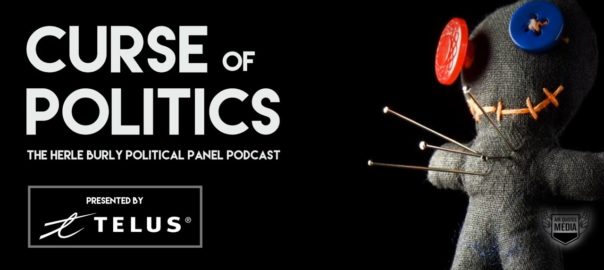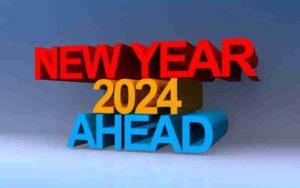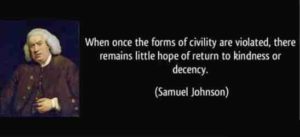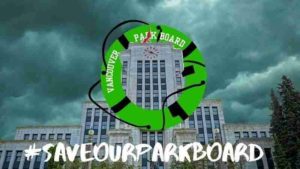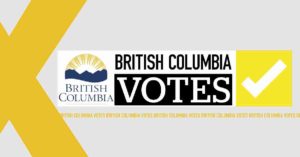
Two hundred and eight-five days from today, British Columbians go to the polls to elect a new government.
Will the citizens of British Columbia return the government of David Eby to an unprecedented third term in government for the British Columbia New Democratic Party? The polls seem to think so — but if you follow politics, you know that a day in politics can be equivalent to a year in the political realm. Whatever the polls may say, it is not until the votes of citizens have been counted that determines the “winner”, and who will form government in the succeeding four years.
As is the case in every election, much is on the line.
Health care, housing, and the cost of living feature as primary issues.
Which of the four main provincial parties do British Columbians believe is best fit to serve the public interest?
If David Coletto’s Abacus poll is any indication, the BC NDP — with its prohibitive lead in the polls — has the confidence of British Columbians, the citizens of our fine province seemingly set to return David Eby’s competent, hands-on, activist administration to government, come the late evening of Saturday, October 19, 2024.
Just finished an new @abacusdataca survey in BC, n=1,000, Nov 22 to Nov 28, 2023
Will put out the results this week, but BC NDP looking solid and the BC United in some serious trouble.#bcpoli pic.twitter.com/UX6PUx6m7y
— David Coletto (@DavidColetto) December 3, 2023
Regionally, the BC NDP is ahead by 22-points in Metro Vancouver, by 27-points on Vancouver Island, and statistically tied with the BC Conservatives in the Interior and in northern British Columbia.
According to Mr. Coletto …
Interestingly, the BC NDP is ahead by 30 points among those aged 45 and over but only ahead by 3 among those under 45. The BC Conservatives do 12-points better among younger BCers than older ones.
The BC NDP leads by 24 among women (49% to 25% for the BC Conservatives) and 12-points among men (40% to 28% for the BC Conservatives).
The Abacus poll found that British Columbians are generally more optimistic about the direction of our province than Canadians in other provinces.
In the Abacus survey, 34% of British Columbians indicated they felt the province is headed in the right direction, 10-points higher than polling taken in Ontario, and 11-points higher than Canadians across Canada feel about our own country.

. In February 2022, the commission opened public consultations for the redistribution of provincial electoral districts. The Commission’s report, published on October 3, 2022, proposed a total of 93 electoral districts, up from 87 districts. Six new ridings were proposed for areas with rapid population growth, with an additional 71 ridings having their boundaries adjusted to accommodate for geographic, demographic, and other concerns.
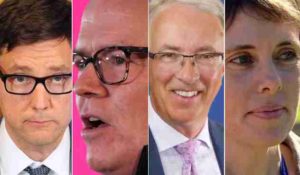
According to David Coletto, were an election held today, based on the polling conducted by Abacus Data, the BC NDP would win an unprecedented 80 seats in the Brltish Columbia legislature, with Kevin Falcon’s BC United Party (formerly BC Liberal party) winning a mere 6 seats (including Mr. Falcon’s home riding of Vancouver Quilchena), the newly formed BC Conservative Party, under the leadership of John Rustad set to win 6 seats, with Green Party of BC leader Sonia Furstenau left as the sole member of her party in the next term of government.
Believe us when we write the projected Abacus Data outcome — and attendant seat count — of the October 19, 2024 British Columbia election is not something any of the provincial party leaders want, or in any way, shape or form hope for.
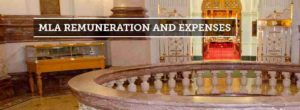
At present, David Eby’s BC NDP government holds a comfortable 13-seat majority, holding 57 BC NDP seats out of the current 87 seats in the legislative assembly. As such, each elected member of the BC NDP is either a Minister, a Parliamentary Secretary, the House Speaker, or a Deputy Speaker, keeping themselves out of trouble, hard at work, and earning significant monies on top of their annual $115,045.93 salary as an elected Member of the British Columbia Legislature.
Ministers earn a $57,522.97 salary top up, as does the House Speaker, with the Deputy Speaker and Assistant Deputy Speaker earning an extra $40,266.08, and Parliamentary Secretaries taking in an extra $17,256.89 annually.
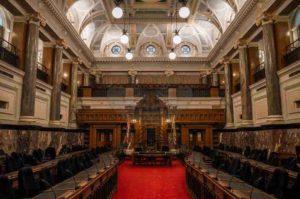
Were the David Eby government to elect 80 members to the B.C. legislature come Saturday, October 19th, an Eby government would find themselves with 23 MLAs, who — over time — would become disenchanted, unfulfilled and ready to either break with the party over environmental or other issues — to form their own party — while creating havoc within the BC NDP, leaving the government in disarray.

One can only hope that B.C. United Party leader Kevin Falcon is correct when he says that BC United is the choice for any British Columbian who wants change.
By election day, Falcon told The Tyee, the Conservative support will return to his party, making it competitive again with the NDP. That kind of turnaround has happened before, he added, giving the example of Christy Clark’s poll-defying BC Liberal victory in 2013 and Vancouver Mayor Ken Sim’s ABC winning in Vancouver with a new party and an unfamiliar name.
For British Columbians of conscience, let’s hope for a victory and a comfortable majority for the British Columbia New Democratic Party come October 19, 2024, with a sizeable B.C. United opposition, a smattering of elected B.C. Conservative MLAs, and a sizeable Green Party of B.C. contingent of progressive, hold the BC NDP government’s feet to the fire, members of the B.C. legislative assembly.
Jordan Leichnitz, the NDP member of the Curse of Politics podcast, in the Oddball Predictions category, has a prediction on the outcome of the 2024 BC provincial election, and how each of the parties will do.
